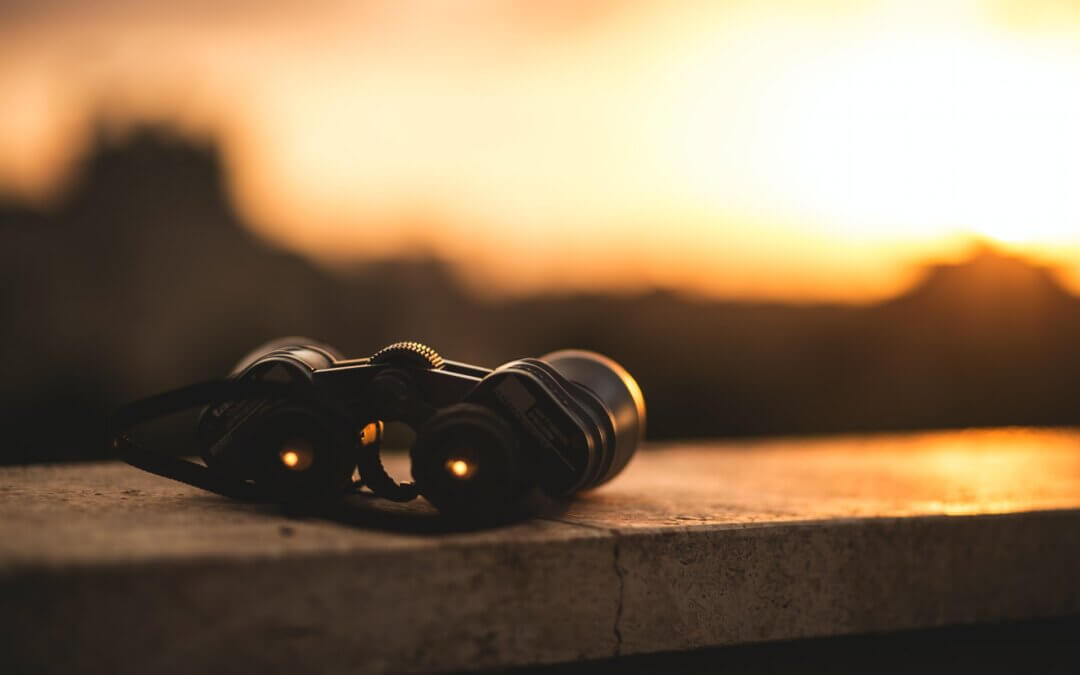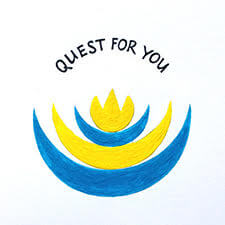Learning from anger – QFY 514
Podcast: Play in new window | Download | Embed
Subscribe: Apple Podcasts | RSS
Anger is a difficult emotion. But by making an effort to understand it better, we can improve from our often defensive response to a more compassionate one. Anger is usually the escalation of other emotions that we have tried to hide. By addressing those, we can often eliminate the angry outburst. Anger happens, but it needs to be addressed so it doesn’t repeat itself.
Recent Episodes

Zooming In – Quest For You 600
Celebrating 600 episodes coincides with the end of an epic year and I want to take to opportunity to invite you to reflect together with me. I want to help you see that this year may have not been the most productive, as you have witnesses with the irregularity of my last 100 episodes, but that doesn’t mean it was a waste. Lets zoom in on it and find meaning.
Podcast: Play in new window | Download | Embed
Subscribe: Apple Podcasts | RSS

Three ways to find gratitude – Quest For You 599
Join me on this Thanksgiving day 2020 with some gratitude, no matter how hard that might be to find this year. We can find gratitude in the past, by acknowledging all the wonderful experiences we have had. We can also find it in this present moment, and in the future.
Podcast: Play in new window | Download | Embed
Subscribe: Apple Podcasts | RSS

The moments bigger than us – Quest For You 598
The moments that are bigger than us tend to lead us into many directions – hiding, frantically searching for answers, or we feel overwhelmed. I have found that such moments, of which we have many this year, are meant to lead us back to ourselves. They require reflection and contemplation as it is often in that quiet time with ourselves that we get to the insights we need to move forward.
Podcast: Play in new window | Download | Embed
Subscribe: Apple Podcasts | RSS

We need civility – Quest For You 597
Its election week and I am less concerned about who wins, and more about what our reaction as a country will be to the incoming president. The word civility has been on my mind lately and this week is a good time to remind ourselves that we cannot afford to forget about it. Being polite may not always be easy, but its the more effective and productive way to deal with issues we don’t agree with and to treat people that are different from us.
Podcast: Play in new window | Download | Embed
Subscribe: Apple Podcasts | RSS

My silence – Quest For You 596
I have been silent for a few weeks with this podcast and this episode is an attempt to explain my reasons. And while there are many potential explanations – the bottom line is this – I haven’t gotten it done. And while I am tempted to blame 2020 with all its newness and not-normalness, I have also have to be honest with myself. I had ideas, but they haven’t turned into action. This episode may resonate with many of you as I am certain we all in stuck in some areas of our life. And to get unstuck, we just need to take one small step. This episode is my first step.
Podcast: Play in new window | Download | Embed
Subscribe: Apple Podcasts | RSS
Popular Episodes

Getting up earlier has been one of my most significant changes that I have made. It has not only brought me more time in my day, but it sets a different tone for my days. Instead of …

We like things that are easy. We try to avoid as much pain as we can. We want to pull through and get it over with. However, some of our biggest accomplishments in life have come from doing hard things.

I learned to smile more when I came to this country. And while I initially had to force myself to smile, I now notice all the amazing positive side effects that smiling brings.

Start every day with intention and direction
Does it seem challenging to find an inner connection with ourselves? Our world can be noisy, overwhelming and distracting.
Yet, the direction for our life comes from within us.
The Quest For You Podcast is my mission to help you discover who you are. I will help you challenge yourself through daily guidance, motivation and inspiration. I want to help you find your direction.
Seasons
Episodes
Downloads
Show Notes for
Learning from anger – QFY 514
Looking for a quote from my show notes?
Episode 514 – Learning from anger
- Welcome back my friends
- I decided to tackle a difficult topic today
- Anger
- When I first thought about making this an episode topic, I didn’t think it would be so hard
- But then I started reading about anger, and now I realize – anger is not an easy emotion
- Its easy to get upset about an angry person
- Its easy to blame them for our pain
- Its easy to dismiss such a person
- I have done all of the above
- But its much harder to try understand what an angry person is going through
- And that I have done very little of
- I recently had an encounter with an angry person and that prompted my interest in the topic
- And this is something else I learned in my research
- Just because I don’t explode and show the obvious signs of anger doesn’t mean I don’t get angry
- Anger has many degrees
- it can range from mild irritation, to frustration, all the way up to seething rage.
- One article I read even classified boredom as a mild version of anger because it’s a form of dissatisfaction with what is happening.
- This episode is for all of us
- We all get angry from time to time and we all have to deal with angry people, sometimes more often than we wish
- Anger is an emotion
- I find it often quite interesting that the people that get angry are the biggest opponents of the “getting emotional” type of behaviors
- When getting angry is actually getting quite emotional
- But – I digress
- What I meant to say is – being emotional is not just crying and whining and being jealous
- Any expression of an emotion, including anger and rage, means we are showing our emotions
- And that in itself should never be downplayed
- We all are emotional beings and its normal to show them
- So if you have been told that being emotional is a weakness, I challenge you to think it through today
- We are all emotional
- And even the people that consider themselves in control of themselves, or stoic, as that is the term often used to describe a lack of emotions, they also show their emotions
- And quite often, that emotion is anger
- Why?
- Because anger is an emotion that is triggered by other, often suppressed emotions
- One article therefore calls anger a secondary emotion
- So in order to address anger, we cannot start with anger itself
- We need to understand what emotions drive anger
- primary emotions, like fear or sadness, can often be found underneath the anger.
- Fear includes feelings like anxiety and worry, and sadness comes from the experience of loss, disappointment or discouragement.
- But there are other feelings that are not as strong and that can still lead to anger
- Stress and exhaustion for example
- These resonate with because I know my fuse gets shorter when I am tired or stressed out about something
- My answers get shorter and I have a lower tolerance for challenging people or situations
- Other emotions that can lead to anger include feeling embarrassed, frustrated, attacked, guilty, disappointed, uncomfortable in some way, worried or offended
- Some of these feelings don’t trigger anger for me but may do so for you
- we all have our degrees of anger
- I like this quote by DP
“If you try to get rid of fear and anger without knowing their meaning, they will grow stronger and return.”
― Deepak Chopra, The Third Jesus: The Christ We Cannot Ignore
- We probably all agree that anger is not a pleasant emotion
- Angry people cause me to either shut down completely or get angry just like them
- For the recipient of anger, It’s a very difficult emotion to deal with
- But its not much easier for the person handing it out
- It often results in regret and shame, knowing that it wasn’t an effective way to deal with an issue
- To me anger may be understandable, but that doesn’t mean its acceptable
- And that includes when I was angry
- I am not happy with myself afterwards
- Anger is a sign of a problem that needs to be addressed
- Anger happens, but it cannot happen repeatedly over the same issues
- This means that the underlying problem is not being tackled
- When we are consistently angry in similar situations, or with the same topics, then its time to figure out the emotion underlying and causing the anger
- Because if not addressed, as DP said, the anger and frustration will only get worse
- If its our anger, We have to understand the meaning of it
- If its someone else anger, we have to help them understand that they need to find the meaning in it
- We now already know this much:
- All primary feelings can be quite uncomfortable because we don’t feel in control
- Fear, sadness, embarrassment – we don’t want others to notice that we feel this way
- So we try to hide our vulnerability, and that means we push those feelings into the background
- But:
- And as Susan David, Ph.D., author of Emotional Agility, says, “Our raw feelings can be the messengers we need to teach us things about ourselves and can prompt insights into important life directions.”
- and this is where our work begins:
- Learning to recognize anger as a protector of our raw feelings, can be helpful in detecting the real issue
- Anger is almost always a sign of a need
- It might be a need to be seen, heard and validated
- It could be a need for space, quiet and time
- Sometimes we need more certainty and clarity
- Often we just want to know that we are loved and accepted
- Anger can also be a sign of an unresolved grief or a fear of a certain outcome
- By identifying the primary emotion, we can then determine the best course of action to resolve the problem.
- For this to happen we need to create a gap between the feeling and the reaction to the feeling
- This sounds harder than it is
- This gap really just is a pause that may take some practice because it requires that we catch ourselves getting angry
- I think we all notice somehow that anger isn’t the right response, but that awareness comes often after the fact, and we just dot know what to do about it
- So we forget about it until next time, when it catches us off guard again
- the shift from a primary emotion like fear or sadness into anger mode is typically quite fast and unconscious
- I call it an impulsive response and it can seem like something we will never be able to control
- and the more of a habit it is for you to be angry, the longer it may take to create that gap and become aware
- But it starts with awareness
- And even if the awareness happens after the fact, slowly we will get better at catching it
- Whether we notice it prior or afterwards, we should try to look within to see what the need is
- In fact, I often ask myself this question when I notice difficult emotions within me
- What is it that I need?
- What’s bothering me?
- Why do I feel this way?
- start by exploring your thoughts, as those are what fuel all emotions
- my thoughts prior to anger are often centered on some sort of dissatisfaction
- there are expectations that haven’t been met
- when I am able to identify those expectations, I often quickly realize how unreasonable they are which then helps me to diffuse my anger
- pause for a moment to check in with yourself and see if you can identify the primary emotion driving the anger
- and if you are the recipient of anger, here is my advice:
- don’t engage with an angry person
- the best way to help that person reflect on his or her anger is to be quiet
- if the anger crosses your boundaries, be sure to establish them
- for example, when someone insults me, I will not allow this and will say so
- I will make a very short and sincere request to please not be insulted
- But I will not engage with the topic of the anger
- I will set the boundary and then try to be quiet
- Because if I am not, then it becomes very hard for me to control my emotions and soon I will find myself angry as well
- Reasoning with an angry person also doesn’t help
- Don’t even try to say “calm down” – it will only make the other person feel worse
- They are already not having their needs met
- By telling them to calm down we are only giving them a cold shoulder
- It takes courage and emotional stability to stand by an angry person and not take their anger personal
- It’s not a skill I have mastered but if you can do it, kudos to you
- It might be easier to do with a partner whom you are emotionally connected with
- It requires a lot of compassion and selflessness to try to understand and distance yourself form your partners anger
- To communicate that you understand their feelings and maybe even try to validate them
- The easiest reaction is to become defensive
- We all often resort to that and its normal
- But if we, as the recipient, also can create a small gap between receiving the anger and reacting to it, we may inject some curiosity into that gap
- “Wow, this person is angry, why is that?”
- What was it that triggered them so severely?
- Its not about feeling sorry for them, but its trying to understand them and at the same time this understanding will help us temper our reaction to the anger
- I always consider the fact that I have some responsibility in the other person’s anger
- While it is their decision to respond this way, I feel somehow reposnilbe for how the other person feels
- Maybe I was ignorant, maybe I was insensitive, whatever it may be
- While I am not taking all responsibility and carry all the burden, I feel its important to reflect on the part we maybe have played and that contributed to the anger
- My climbing partner tends to get angry when I make mistakes on things I should already know, things he taught me
- It took me a long time to realize that justifying my mistakes only makes things worse
- I believe he feels let down by my inability to remember basic things that he taught me
- So I have changed my response to becoming quiet, acknowledging the mistake and leaving it at that
- And just yesterday we talked about this very thing
- He has a need that’s not met that causing him this anger
- So instead of focusing on the anger
- We discussed the expectation and agreed on a plan going forward
- That’s often all we have to do
- Even if we are sometimes accused unjustly
- To validate the other person and avoiding any escalation, its best to surrender in the moment
- And later, when the anger subsides, a conversation may be possible where the need that wasn’t met should be discussed to see if you can come to an agreement
- And it may not always be possible to reach consensus
- If its something that is very important, then maybe the resolution is to part ways
- Repeated Anger should not be tolerated over the same issues
- Try to find the underlying need, address it if possible, and if not, part ways
- I believe, that once the actual need is uncovered, it can often be easily addressed, when both people are willing to compromise
- And this compromise may become easier after you listen to the next couple of paragraphs from Poet David Whyte on anger,
- These have really helped me shift how I view anger, especially when directed at me
What we have named as anger on the surface is the violent outer response to our own inner powerlessness, a powerlessness connected to such a profound sense of rawness and care that it can find no proper outer body or identity or voice, or way of life to hold it. What we call anger is often simply the unwillingness to live the full measure of our fears or of our not knowing, in the face of our love for a wife, in the depth of our caring for a son, in our wanting the best, in the face of simply being alive and loving those with whom we live.
Anger truly felt at its center is the essential living flame of being fully alive and fully here; it is a quality to be followed to its source, to be prized, to be tended, and an invitation to finding a way to bring that source fully into the world through making the mind clearer and more generous, the heart more compassionate and the body larger and strong enough to hold it. What we call anger on the surface only serves to define its true underlying quality by being a complete but absolute mirror-opposite of its true internal essence.
- “a quality to be followed to its source”
- Follow it
- Learn what it is teaching you about yourself
- Find out what it is you need
- And address it
- Because anger often leaves a lot of damage in its path
- When its really just an outcry for help
- Answer the cry and find the help you need so other people are nor hurt by your anger
Much love
Don’t miss our daily episodes. Subscribe now!
Please join me to Listen & Subscribe.
Choose this step and empower yourself to become the person you desire to be!
Podcast: Play in new window | Download | Embed
Subscribe: Apple Podcasts | RSS
0 Comments